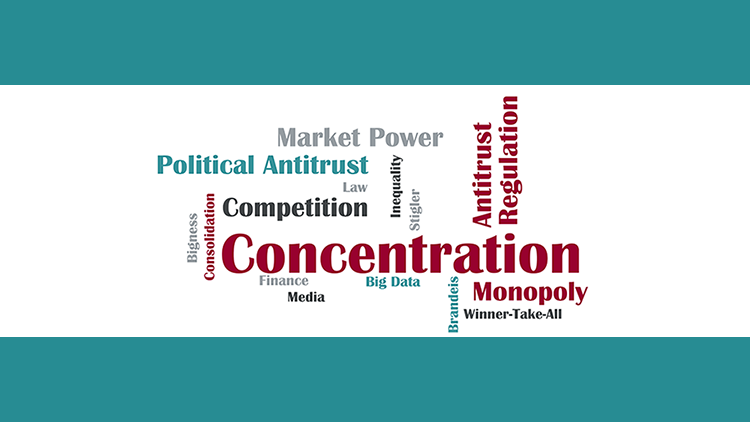In this installment of ProMarket’s interview series on concentration in America, Chicago Booth professor and former chair of President Obama’s Council of Economic Advisers Austan Goolsbee talks about market power. “We care about market power, not concentration. Industries where market power can harm consumers the most are the ones we should care the most about.”
Does America have a concentration problem? On March 27-29, the Stigler Center hosted a first-of-its-kind, three-day conference in Chicago that focused on this very question.
The conference brought together dozens of top academics from law, economics, history, and political science, policymakers, journalists, and public intellectuals. Ahead of this conference, we presented influential scholars and thinkers with some questions on concentration, market power, and bigness—and their potential effects on the U.S. economy.
You can read all previous installments here.

Austan D. Goolsbee is the Robert P. Gwinn Professor of Economics and the University of Chicago Booth School of Business. He previously served in Washington as the Chairman of President Obama’s Council of Economic Advisers and a member of the President’s cabinet. His research has earned him recognition as a Fulbright Scholar and an Alfred P. Sloan fellow.
Goolsbee is also a popular media commentator on economic issues. Jon Stewart described him as “Eliot Ness meets Milton Friedman” and he has twice been named a “star” professor by BusinessWeek‘s “Guide to the Best Business Schools.” He was also named one of the 100 Global Leaders for Tomorrow by the World Economic Forum, and one of the six “Gurus of the Future” by the Financial Times.
Goolsbee serves on the Economic Advisory Panel to the Federal Reserve Bank of New York and has previously served on the Panel of Economic Advisors to the Congressional Budget Office and the U.S. Census Advisory Commission. He was a special consultant for Internet Policy to the Antitrust Division of the Department of Justice. He joined Chicago Booth in 1995.
In a brief Q&A with ProMarket, we asked Goolsbee to comment on concentration and market power.
Q: The discourse on concentration, market power, and bigness in many U.S. industries has increased dramatically in the last year. Do you believe that we have enough empirical evidence to show that concentration is on the rise and having adverse effects on the economy?
Definitely not. The only representative evidence we have comes from the Economic Census data every five years and is released with a lag. Everything else comes from court cases or non-representative samples and is filled with ambiguity and myth.
Q: In your opinion, what are the main reasons for the rise in concentration?
Wow. Very hard to say so far. Actually, there’s an important task to be done to convincingly even document that is an actual fact.
Q: Which industries should we be concerned with when we look at questions of concentration?
We care about market power, not concentration. Industries where market power can harm consumers the most are the ones we should care the most about. If it slows the rate of innovation, those are probably the worst ones.
Q: Has consolidation in the financial industry played a role in concentration or antitrust issues in the U.S.?
As a factual matter, yes, it has played a role.
Q: The five largest internet and tech companies—Apple, Google, Amazon, Facebook, and Microsoft—have outstanding market share in their markets. Are current antitrust policies and theories able to deal with the potential problems that arise from the dominant positions of these companies and the vast data they collect on users?
There are lots of particulars to the industries of those five different cases.
Q: Is there a connection between the growing inequality in the U.S. and concentration, dominant firms, and winner-take-all markets?
Probably. But we don’t really know more than correlations at this point.
Q: President Trump has signaled before and after the election that he may block mergers and go after certain dominant companies. What kind of antitrust policies should we expect from him? Pro-business, pro-competition, or political antitrust?
I don’t expect antitrust enforcement from his administration, basically, at all. I guess in your schema that would be a combination of pro-business and political.






